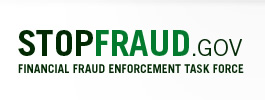
U.S. Department of Justice
United States Attorney
District of Connecticut
Wednesday, April 25, 2012
Connecticut Resident Admits Defrauding Investors of More Than $1 Million
NEW HAVEN, Conn. – Robin Bruhjell Brass, 55, of Washington Depot, Conn., pleaded guilty today before U.S. Magistrate Judge William I. Garfinkel in Bridgeport, Conn., to one count of mail fraud stemming from a scheme to defraud investors of more than $1 million, announced U.S. Attorney for the District of Connecticut David B. Fein. Brass has been detained since her arrest on Nov. 15, 2011.
“This case serves as another reminder that the investing public must be vigilant before entrusting their funds to would-be investors,” said U.S. Attorney Fein. “People should research their investment advisors and verify information provided to them. Everyone should be suspicious of guaranteed high rates of return, investments that promise ‘little or no risk of loss,’ and investment scenarios that are difficult to understand. I commend the U.S. Postal Inspection Service, SIGTARP, FBI and Connecticut’s Department of Banking for investigating this matter and securing justice.”
According to court documents and statements made in court, between approximately March 2009 and November 2011, Brass represented herself as a successful investment advisor and solicited funds from investors, including investors who were elderly and in a vulnerable physical condition. Brass told some potential investors that their money would be safe if invested with her because she had a formula for investing that ensured against loss and guaranteed a good return on investment. She also told some investors that her investment funds were federally insured and that she would personally guarantee investments in the fund with her own substantial personal assets. As part of the scheme, Brass reassured some of her investors by sending fraudulent account statements to them purporting to represent their account balances and that their investments were performing well. Brass told some investors that she could not repay them because the state of Connecticut had “frozen” her accounts. These statements were false.
Brass failed to invest all of the funds entrusted with her and used some of the money to pay personal expenses for herself and her family, such as credit card bills, college tuition bills, home furnishings and clothing, and to make “lulling” payments to previous investors. Brass also used investors’ money to make loan payments to a bank that received funds though the Troubled Asset Relief Program (TARP).
Victims lost more than $1 million as a result of this scheme.
Brass is scheduled to be sentenced by U.S. District Judge Mark R. Kravitz on July 18, 2012, at which time Brass faces a maximum sentence of 20 years in prison and a fine of up to $250,000.
This matter has been investigated by the U.S. Postal Inspection Service (USPIS), the Special Inspector General for the Troubled Asset Relief Program (SIGTARP), the FBI and the state of Connecticut Department of Banking. The case is being prosecuted by Assistant U.S. Attorney Susan L. Wines.
In December 2010, the U.S. Attorney’s Office for the District of Connecticut and several law enforcement and regulatory partners announced the formation of the Connecticut Securities, Commodities and Investor Fraud Task Force, which is investigating matters relating to insider trading, market manipulation, Ponzi schemes, investor fraud, financial statement fraud, violations of the Foreign Corrupt Practices Act and embezzlement. The task force includes representatives from the U.S. Attorney’s Office for the District of Connecticut; FBI; Internal Revenue Service – Criminal Investigation; U.S. Secret Service; USPIS; U.S. Department of Justice’s Criminal Division, Fraud Section and Antitrust Division; U.S. Securities and Exchange Commission (SEC); U.S. Commodity Futures Trading Commission (CFTC); SIGTARP; Office of the Connecticut Chief State’s Attorney; state of Connecticut Department of Banking; Greenwich, Conn., Police Department and Stamford, Conn., Police Department.
Connecticut citizens are encouraged to report any financial fraud schemes by calling, toll free, 855-236-9740, or by sending an email to ctsecuritiesfraud@ic.fbi.gov.
This case was brought in coordination with the President’s Financial Fraud Enforcement Task Force, which was established to wage an aggressive and coordinated effort to investigate and prosecute financial crimes. The task force includes representatives from a broad range of federal agencies, regulatory authorities, inspectors general, and state and local law enforcement who, working together, bring to bear a powerful array of criminal and civil enforcement resources. The task force is working to improve efforts across the federal executive branch, and with state and local partners, to investigate and prosecute significant financial crimes, ensure just and effective punishment for those who perpetrate financial crimes, combat discrimination in the lending and financial markets, and recover proceeds for victims of financial crimes.
To report financial fraud crimes, and to learn more about the President’s Financial Fraud Enforcement Task Force, please visit www.stopfraud.gov.



